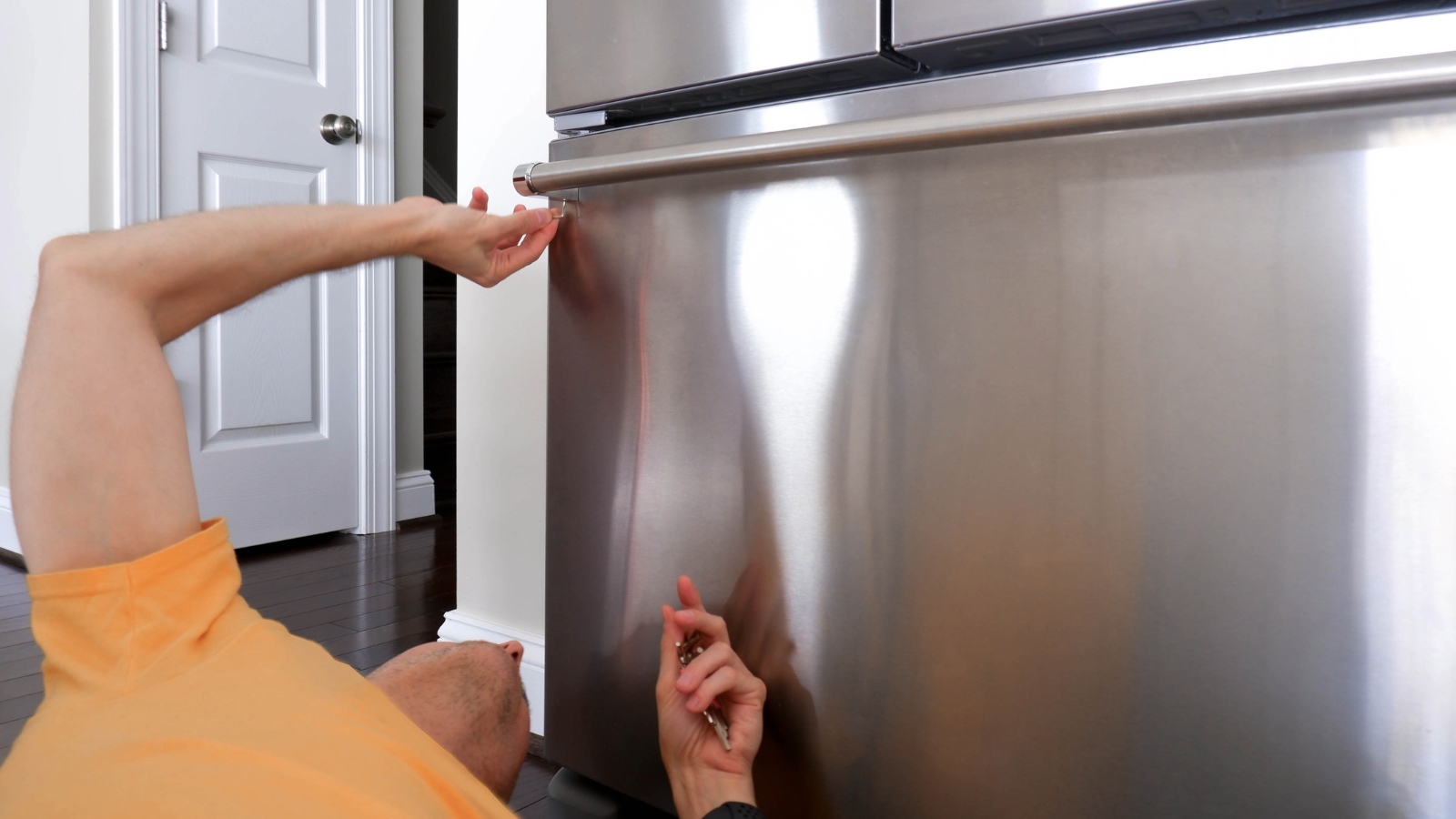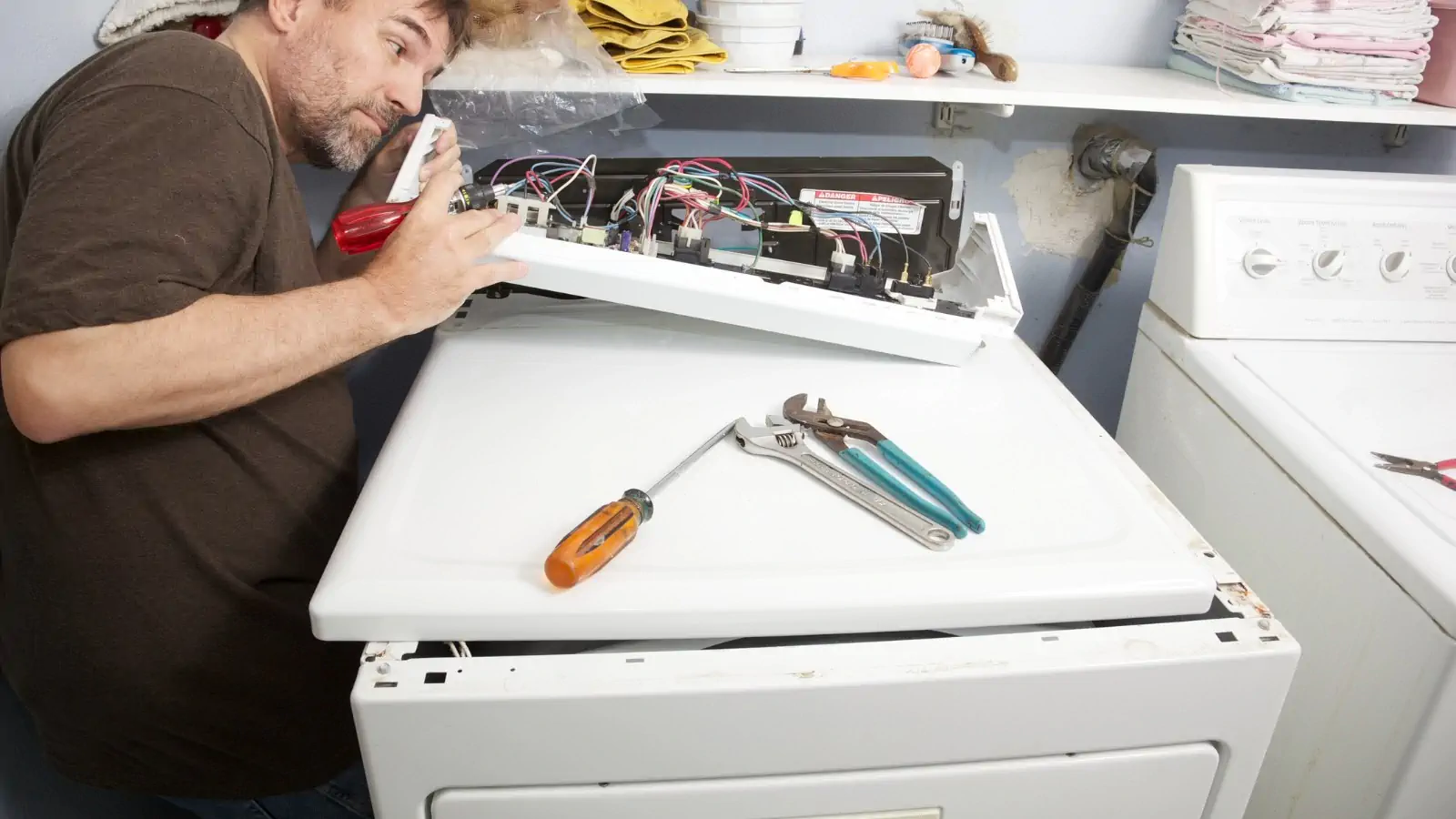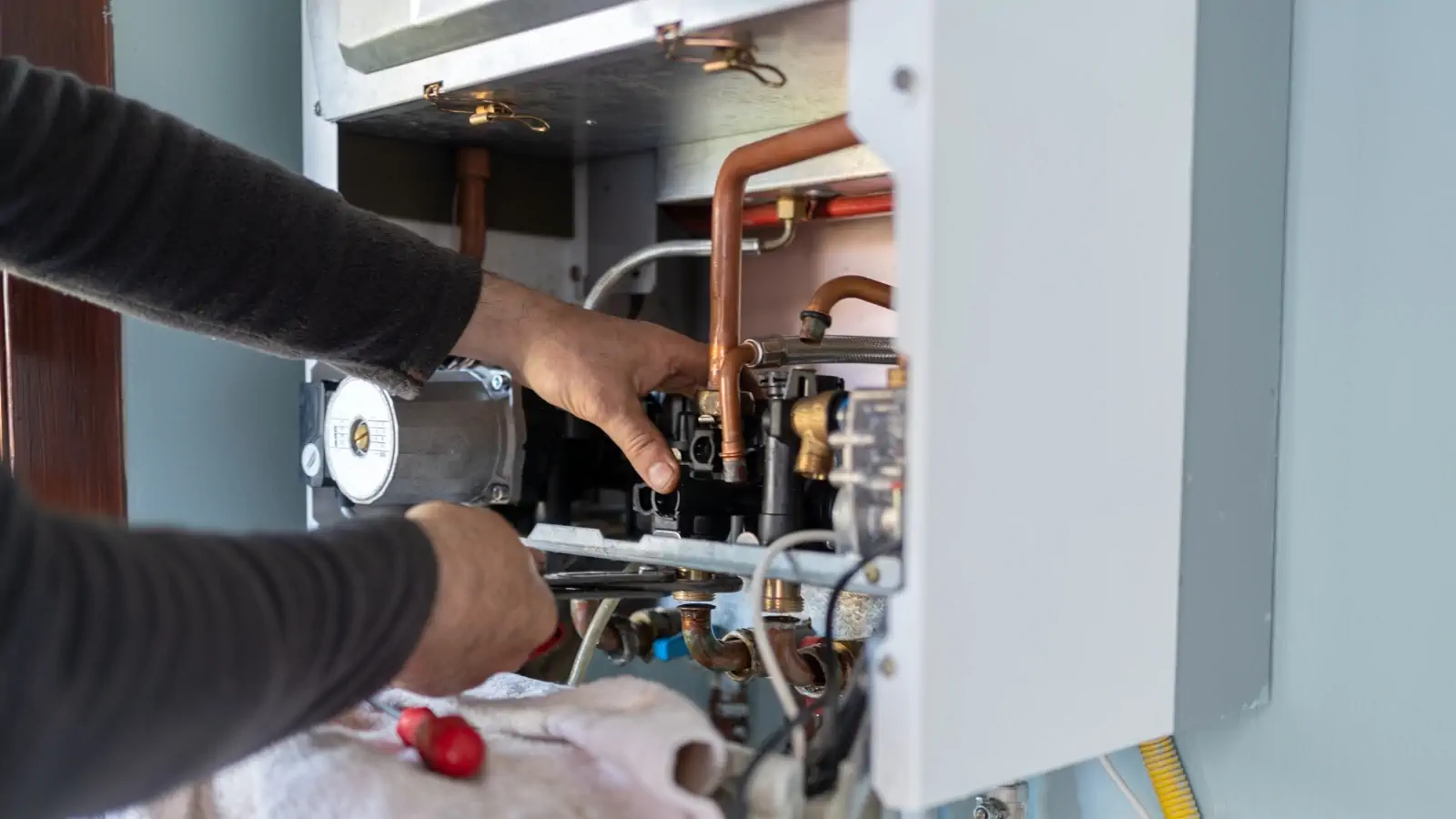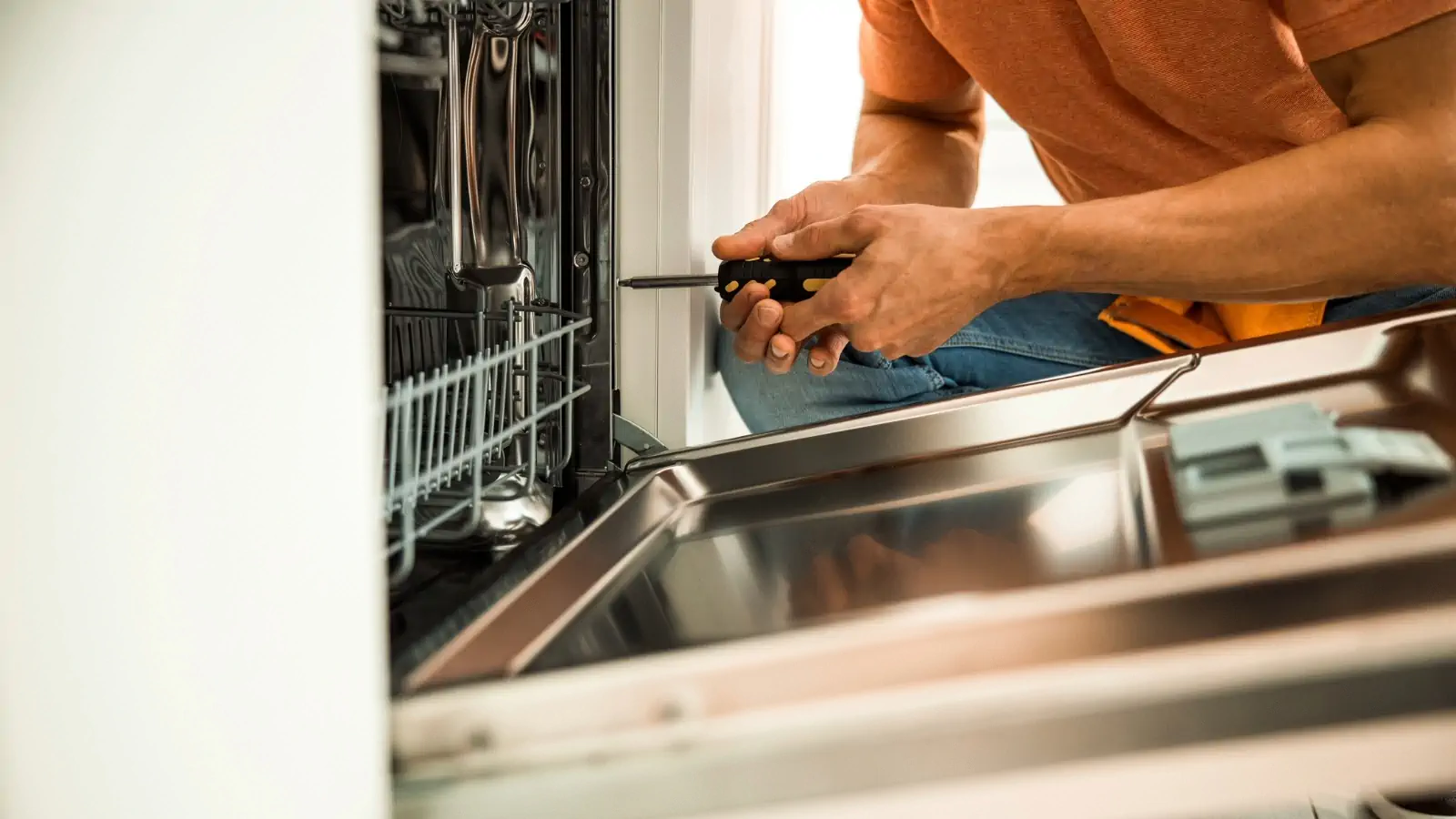Are your household appliances showing signs of wear and tear? Deciding whether to repair or replace them can be tricky. Some appliances give clear signals when they’re malfunctioning, while others might require closer observation. Keep an eye out for these common appliance issues to help determine the best course of action.
Signs Your Appliances Need Repair
1. Refrigerators & Freezers

- Warm exterior: If your fridge feels unusually warm, the compressor might be failing. This could result in spoiled food and higher energy bills. Repairing it typically costs around $200, which is less expensive than buying a new one.
- Odd noises: Strange sounds often point to a compressor issue. Ignoring this could lead to more significant problems down the line—so it’s best to call a professional sooner rather than later.
- Food spoiling quickly or uneven cooling: Uneven cooling might mean the thermostat isn’t set correctly (it should be between 0°F and 4°F), or there could be a blockage in the vents or a failing compressor.
- Excessive frost buildup: Frost accumulation suggests the defrost system isn’t functioning properly and may need repair.
- Leaking water: Pooling water beneath the fridge could indicate a clogged drain or another internal issue.
- Door won’t close properly: Damaged seals are a simple fix but neglecting them can increase energy consumption over time.
2. Dishwashers

- Dirty or residue-covered dishes: Clogged spray arms or a broken filter might be the culprit here. Fixing these issues early prevents unnecessary waste of water and energy.
- Cold dishes after a cycle: If your dishes aren’t coming out hot, the heating element may be broken, affecting proper sanitization.
- Bad odors: Persistent smells often stem from bacterial or mold growth inside the dishwasher, requiring professional inspection.
- Water pooling inside or leaking onto the floor: Either scenario suggests drainage or pump problems, which could escalate into major damage if ignored.
3. Washing Machines

- Improper filling, spinning, or draining: If your washer isn’t functioning as expected, the pump might need replacing, which generally costs between $75 and $200.
- Leaking water: Inspect hoses for kinks or filters for clogs, which could be causing leaks.
- Unusual vibrations or noises: Excessive movement or noise might indicate an unbalanced load or worn-out drum or bearings.
4. Dryers

- Takes too long to dry clothes: A blocked vent or a failing heating element might be the root cause here.
- Strange noises: A noisy dryer likely needs its belt replaced, costing approximately $200.
- Clothes aren’t drying: Faulty heating elements or clogged vents could be responsible for this issue.
- Gas dryer ignition coil problems: In gas dryers, malfunctioning ignition coils pose safety risks, so regular replacements are advisable.
5. Ranges/Stoves
- Burners don’t light or heat unevenly: Clogged burners or misaligned parts are common culprits, though gas stoves may require a faulty ignition check if the problem persists.
- Oven temperature is inconsistent: Issues with the thermostat or heating element might necessitate repairs.
- Sparks or unusual noises: These are telltale signs of electrical faults that could pose fire hazards—contact a technician immediately.
- Gas smell: A strong gas odor near a gas stove indicates a potential leak, warranting immediate professional attention.
6. Water Heaters

- Slow heating: Burnt-out heating elements or broken burners might need replacement.
- Rusty water: Rust signals internal corrosion, possibly leading to leaks or tank bursts.
- Rumbling noises: Sediment buildup in the tank causes these sounds; ignoring this could lead to tank failure.
- Water pooling around the base: This indicates a leak; call a professional promptly to avoid water damage or mold growth.
Repair vs. Replace: When to Decide

Generally, if the repair cost exceeds half the price of a new appliance, it’s smarter to opt for replacement. Additionally, newer models are typically more energy-efficient, offering long-term savings.
Keep an eye on these warning signs to ensure smooth operation at home. And remember, calling a professional early can save both time and money.
Secure Your Back-Up Plan
Have you considered a back-up plan? Specifically, a protection plan? Avoid unexpected expenses with the Rümi Appliance Home Protection Plan. It covers repairs for your fridge, dishwasher, washer, dryer, and stove—even if they’re no longer under warranty. You’ll also gain access to free home inspector advice and legal support for homeowner-related matters. This is the ultimate safeguard for homeowners, especially those with older appliances.
Polyanionic Celluolose, short for PAC, Sodium Carboxymethyl Cellulose, short for CMC, Hydroxyethyl Cellulose, short for HEC all can be used for oil drilling application.
Polyanionic Cellulose, Powder Sodium CMC, Powder HEC with low and high viscosity
Santo Chemical Limited , https://www.santchem.com
